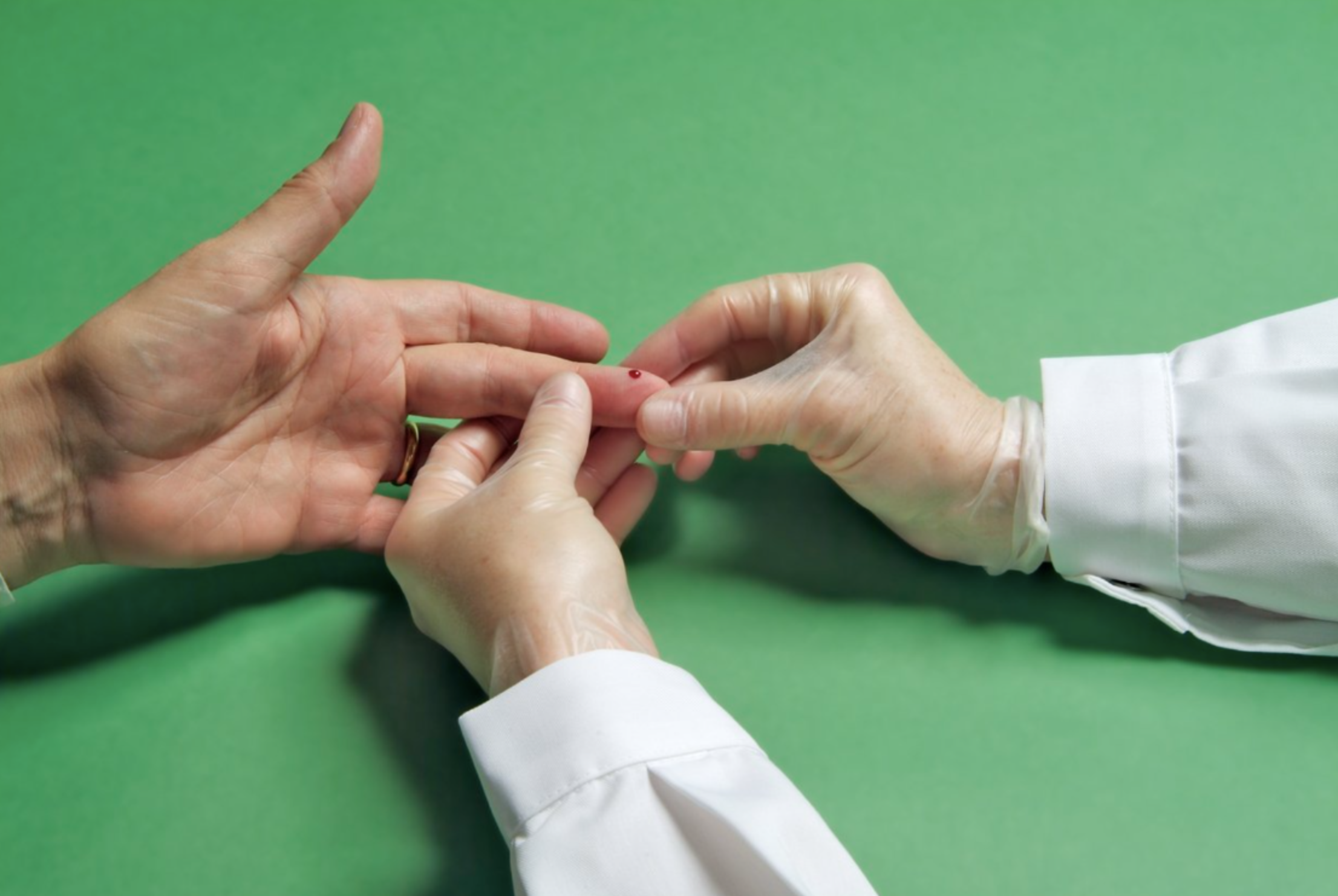JUST A LITTLE PRICK... EASY HEP C TESTING
WHAT IS FINGER PRICK TESTING?
Goodbye and good riddance to the days of having a nurse draw up vials of blood with a syringe (usually from the crook of the arm and often in your best, sometimes only, vein) to test for hep C.
You no longer have to worry about whether you have good enough veins to be tested for hep C, a huge barrier for some older people who use drugs. More and more services are realising that the easiest way to get vein-challenged people tested is to forget veins and vials in favour of collecting drops of blood from a fingertip.
Finger prick testing is fast, convenient and easy to use – and you are in control.
It involves sticking the end of your finger with a needle or lancet (a device that makes a tiny insertion or cut, quickly and fairly painlessly). It is the same procedure people with diabetes use daily to check their blood sugar.
Then, the blood drops from the finger and you collect it on a special [blotting] card which is dried and tested (in the case of Dried Blood Spot) or it is drawn up by capillary action by a thin glass tube for transfer to the cartridge used for the point-of-care testing machine.
Fingerprick blood work is used in two ways.
DRIED BLOOD SPOT (DBS)
Dried blood spot testing for hepatitis C is available through a NSW Health research study. The study tests for HIV and hepatitis C and the test is available via a website (hivtest.health.nsw.gov.au) or it can be picked up at Sexual Health Clinics, ACON offices and the NUAA NSP (more information below)
WHAT DOES IT TEST FOR?
The DBS test tells you if you are hepatitis C positive (if you have a current infection - HCV RNA) and HIV (positivity, CD4 count)
HOW DOES IT WORK?
You prick your finger, drop the blood onto a card provided in the testing kit, wait four hours for the blood to dry and send it off. If there is a health care professional assisting the testing process, they can take care of sending the test.
Your card is sent to the lab for analysis. You will receive a text message when your results are available which will give you a number to ring the Sexual Health Information Line. Alternatively, if you’ve done the test through a local service, they will receive and follow up on the results. If you test negative then you will receive a text letting you know.
The test is 99% accurate
WHERE TO GET IT?
Good news for rural and remote communities and anywhere! If you are over 16, you can register online and be sent the test card, a reply-paid envelope and instructions. You then do a self-test and send it back for free. Go to https://www.hivtest.health.nsw.gov.au/ and click on Get Started. You can (and should) order tests for hep C and HIV here.
The website has directions in Chinese, Bahasa Indonesian, Thai, Vietnamese, Arabic, Portuguese, French and Spanish.
You can call 1800 451 624 if you aren’t connected to the net and want a test kit sent to you, or if you have trouble with the test.
POINT OF CARE (POC) TESTING
WHAT DOES IT TELL US?
Point of care testing gives you a full picture of your hep C status: Are you living with hep C right now? And if so, what is your genotype? And how healthy is your liver?
HOW DOES IT WORK?
You prick your finger, let it flow into a blood collection device and hand it to the health worker. Your job is then over.
The sample is placed into a cartridge and loaded for the machine to run – which takes about an hour.
There is no need for a second appointment to get the test results. The results come out and the health worker explains it all to you along with your options for treatment if necessary
In most cases, you will no longer even need a fibroscan to check the health or hardness (elasticity) of your liver - although this is still a good idea and it can also check for Fatty Liver
Most people will leave with their medication and be able to start treating their hep C straight away, no mucking about.
HOW TO GET IT?
Point of care testing is only available through research studies at the moment. It’s a bit of a case of “watch this space”, but it won’t be long.
NUAA will be participating in the TEMPO study starting soon which uses rapid testing and provides on-the-spot treatment as will ACON. There are plans to expand this study across NSW.
POC testing is also being trialled in a couple of jails and may spread to more.
We’ll keep you up to date at NUAA or call your local hospital’s Liver Clinic to ask how you can get POC testing.

